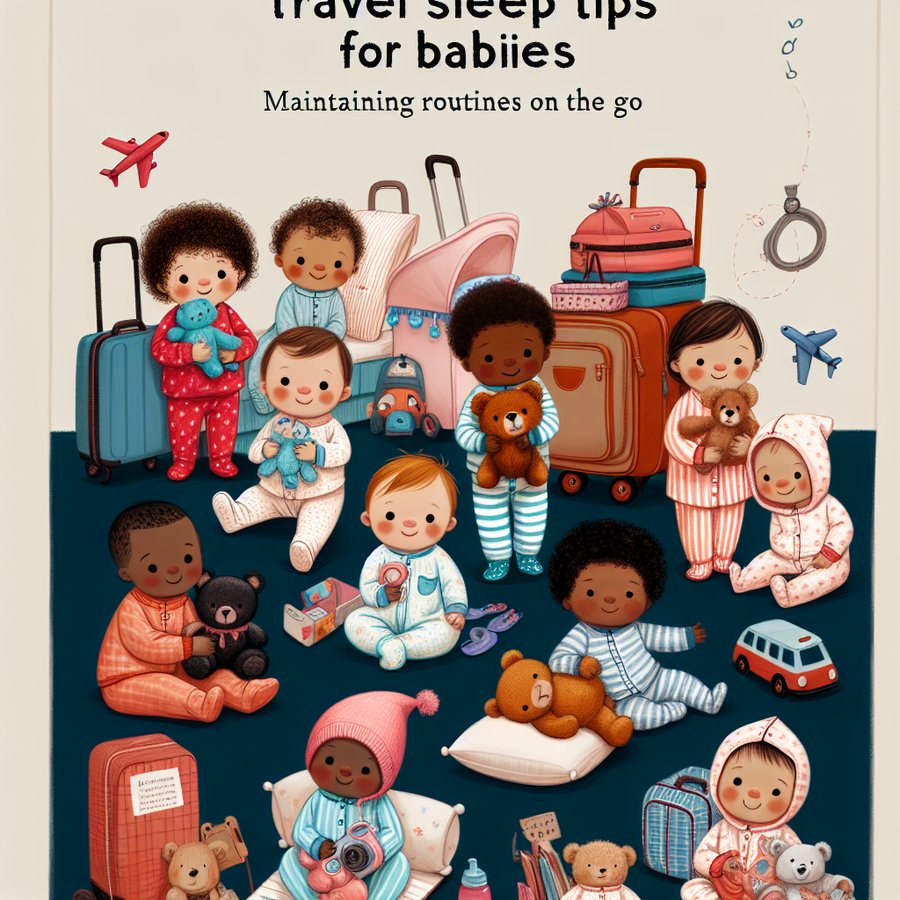Traveling with a baby presents a unique set of challenges, especially when it comes to sleep. Travel sleep tips for babies: Maintaining routines on the go is a crucial topic for parents looking to preserve their little one’s sleep habits while traveling. Whether you’re venturing out for a quick weekend getaway or embarking on a lengthy holiday, keeping your baby’s sleep schedule intact is paramount. This article will explore strategies to help your baby sleep well, even when away from the comfort of home.
Understanding Your Baby’s Sleep Needs
Before we delve into specific travel sleep tips for babies: maintaining routines on the go, it’s essential to understand the basics of baby sleep. Babies require a lot of sleep to support their rapid development. According to the American Academy of Pediatrics, infants need between 12 to 16 hours of sleep per 24-hour period, depending on their age. This sleep is crucial for their growth, learning, and overall well-being. Recognizing the importance of maintaining these sleep patterns is the first step in successful travel sleep strategies.
For more detailed guidance on establishing a solid sleep foundation at home, check out how to establish a sleep schedule for a newborn.
Travel Sleep Tips for Babies: Maintaining Routines on the Go
Maintaining your baby’s sleep routine while traveling is pivotal. Here are several travel sleep tips for babies: maintaining routines on the go to ensure your baby stays rested:
1. Mimic Home Sleep Environment: Try to recreate the sleep setting your baby is accustomed to as closely as possible. This might mean bringing along their favorite blanket, white noise machine, or even a portable crib that feels similar to their bed at home. Familiarity breeds comfort, which can soothe your baby into sleep more effortlessly.
2. Stick to Sleep Schedules: As much as possible, adhere to your baby’s regular nap and bedtime schedules. This consistency helps regulate their internal clock, making it easier for them to fall asleep even in a new environment.
3. Gradual Adjustment for Time Zones: If you’re crossing time zones, gradually adjust your baby’s sleep schedule a few days before traveling. This slow shift can help minimize the impact of jet lag. For more insights, visit adjusting baby’s sleep schedule after travel across time zones.
4. Create a Calming Pre-sleep Routine: Engage in quiet, soothing activities before bedtime to signal to your baby that it’s time to wind down. Whether it’s a gentle bath or reading a favorite book, maintaining a consistent pre-sleep routine can help your baby feel secure and ready for bed.
Choosing the Right Travel Gear for Sleep
Selecting appropriate travel gear is another essential factor in our travel sleep tips for babies: maintaining routines on the go. The right gear can make a significant difference in how well your baby sleeps away from home. Consider investing in a high-quality, portable crib that’s easy to set up and mimics the feel of your baby’s usual sleeping environment. Additionally, a portable white noise machine can be a lifesaver for blocking out unfamiliar sounds and creating a calming atmosphere for sleep.
It’s also wise to choose accommodations that support your baby’s sleep needs. For example, booking a hotel room with separate sleeping areas can be beneficial if your baby is easily disturbed. For more tips on creating the optimal sleep environment, read about optimizing the nursery for sound sleep.
Addressing Common Travel Sleep Challenges
Even with the best-laid plans, you may encounter sleep challenges while traveling. Changes in routine, environment, and even altitude can affect your baby’s sleep. However, being prepared to address these challenges can help you navigate them more smoothly.
One common issue is difficulty settling down to sleep in a new place. To combat this, spend some time helping your baby acclimate to the new sleep setting during the day. This can make it less intimidating come nighttime. For babies struggling with sleep disruptions, consider sleep aids that are safe for babies.
Another challenge is maintaining nighttime feedings without disrupting sleep too much. To manage this, try to keep feedings as calm and quiet as possible, minimizing stimulation. This approach can help your baby return to sleep more readily after eating.
In conclusion, while traveling with a baby requires additional planning and flexibility, implementing these travel sleep tips for babies: maintaining routines on the go can significantly enhance your travel experience. By prioritizing your baby’s sleep needs, you can ensure a more enjoyable and restful trip for the entire family.
For further reading on managing sleep for babies, don’t miss our article on dealing with sleep regression at 9 months.













